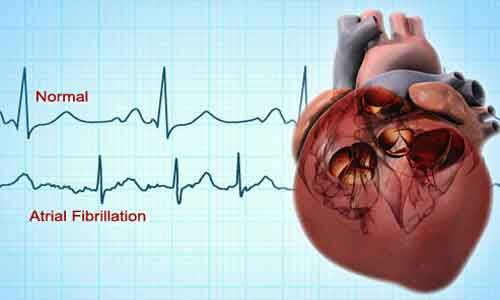- Home
- Medical news & Guidelines
- Anesthesiology
- Cardiology and CTVS
- Critical Care
- Dentistry
- Dermatology
- Diabetes and Endocrinology
- ENT
- Gastroenterology
- Medicine
- Nephrology
- Neurology
- Obstretics-Gynaecology
- Oncology
- Ophthalmology
- Orthopaedics
- Pediatrics-Neonatology
- Psychiatry
- Pulmonology
- Radiology
- Surgery
- Urology
- Laboratory Medicine
- Diet
- Nursing
- Paramedical
- Physiotherapy
- Health news
- Fact Check
- Bone Health Fact Check
- Brain Health Fact Check
- Cancer Related Fact Check
- Child Care Fact Check
- Dental and oral health fact check
- Diabetes and metabolic health fact check
- Diet and Nutrition Fact Check
- Eye and ENT Care Fact Check
- Fitness fact check
- Gut health fact check
- Heart health fact check
- Kidney health fact check
- Medical education fact check
- Men's health fact check
- Respiratory fact check
- Skin and hair care fact check
- Vaccine and Immunization fact check
- Women's health fact check
- AYUSH
- State News
- Andaman and Nicobar Islands
- Andhra Pradesh
- Arunachal Pradesh
- Assam
- Bihar
- Chandigarh
- Chattisgarh
- Dadra and Nagar Haveli
- Daman and Diu
- Delhi
- Goa
- Gujarat
- Haryana
- Himachal Pradesh
- Jammu & Kashmir
- Jharkhand
- Karnataka
- Kerala
- Ladakh
- Lakshadweep
- Madhya Pradesh
- Maharashtra
- Manipur
- Meghalaya
- Mizoram
- Nagaland
- Odisha
- Puducherry
- Punjab
- Rajasthan
- Sikkim
- Tamil Nadu
- Telangana
- Tripura
- Uttar Pradesh
- Uttrakhand
- West Bengal
- Medical Education
- Industry
Episodes of atrial fibrillation associated with ischemic stroke risk: JAMA Study

USA: Episodes of atrial fibrillation (AF) lasting at least 5.5 hours are associated with a higher risk of ischemic stroke, particularly in the first few days, a study carried out in patients with cardiac implantable electronic devices (CIEDs) confirms. Further, the risk of stroke was most apparent in the first 1 to 5 days after the AF episode after which it waned away and then dissipated quickly.
The study, published in the journal JAMA Cardiology, supports AF being a causal risk factor than the idea of a risk marker and that paroxysmal atrial fibrillation poses a risk of stroke during and for a short time and the risk decreases rapidly.
Understanding the temporal association between atrial fibrillation and ischemic stroke is helpful for understanding the AF-stroke mechanism and treatment of paroxysmal AF. Daniel E. Singer, Department of Medicine, Massachusetts General Hospital, Boston, and colleagues, therefore, aimed to define the temporal association between episodes of AF and stroke in patients with cardiac implantable electronic devices in a case-crossover study.
The study included data from a large national electronic health record database. The database were linked with a single-vendor database of heart rhythm records of patients with CIEDs capable of continuous heart rhythm monitoring. It included patients with CIEDs who sustained an ischemic stroke who also had 120 days of continuous remote rhythm monitoring prestroke. Exposure included AF for 5.5 hours or more on any given day during days 1 to 30 vs days 91 to 120 prestroke.
Of 891 included patients, 575 (64.5%) were male, and the median age was 76 years.
The study yielded the following findings:
- The vast majority of patients with stroke had either no AF meeting the threshold duration of 5.5 hours or more in both the case and control periods (76.5%) or AF of 5.5 hours or more in both periods (16.0%).
- For those not meeting the 5.5-hour AF threshold in either period, there was no or very little AF throughout the 120-day prestroke.
- A total of 66 patients had informative, discordant arrhythmic states, with 52 having AF of 5.5 hours or more in the case period vs 14 in the control period (odds ratio [OR], 3.71).
- Stroke risk was increased most in days 1 to 5 following an AF episode (OR, 5.00).
- AF greater than 23 hours on a given day was associated with the clearest increase in stroke risk (OR, 5.00).
The researchers concluded, "our findings are consistent with the traditional view that AF is directly and transiently associated with ischemic stroke. These results provide support for trials of time-delimited anticoagulation for patients with infrequent multihour episodes of AF and rigorous, continuous rhythm monitoring."
Reference:
Singer DE, Ziegler PD, Koehler JL, Sarkar S, Passman RS. Temporal Association Between Episodes of Atrial Fibrillation and Risk of Ischemic Stroke. JAMA Cardiol. Published online September 29, 2021. doi:10.1001/jamacardio.2021.3702
Dr Kamal Kant Kohli-MBBS, DTCD- a chest specialist with more than 30 years of practice and a flair for writing clinical articles, Dr Kamal Kant Kohli joined Medical Dialogues as a Chief Editor of Medical News. Besides writing articles, as an editor, he proofreads and verifies all the medical content published on Medical Dialogues including those coming from journals, studies,medical conferences,guidelines etc. Email: drkohli@medicaldialogues.in. Contact no. 011-43720751


